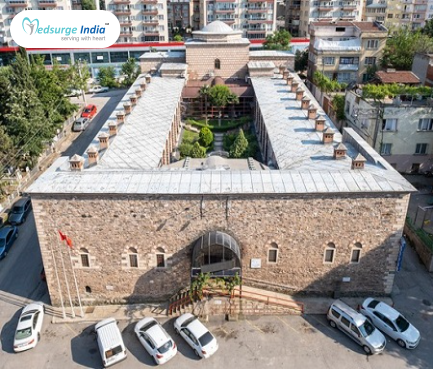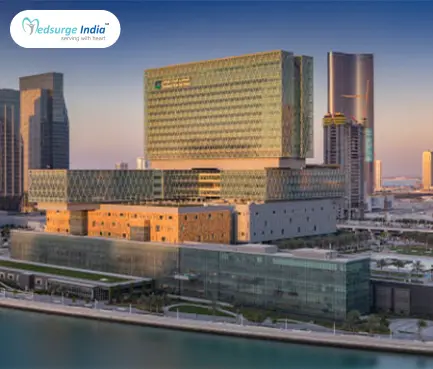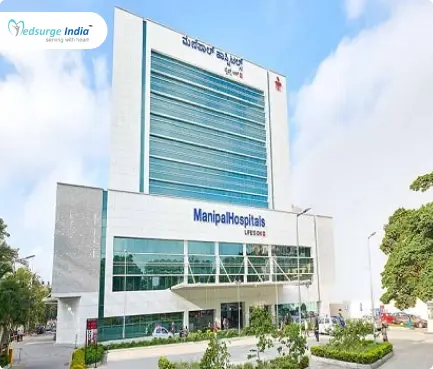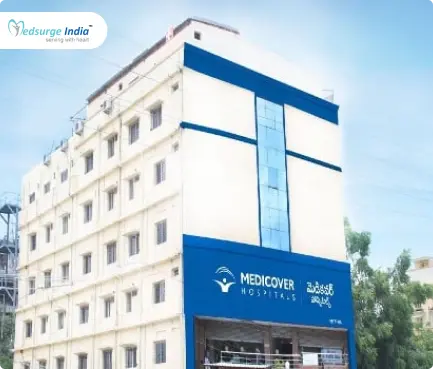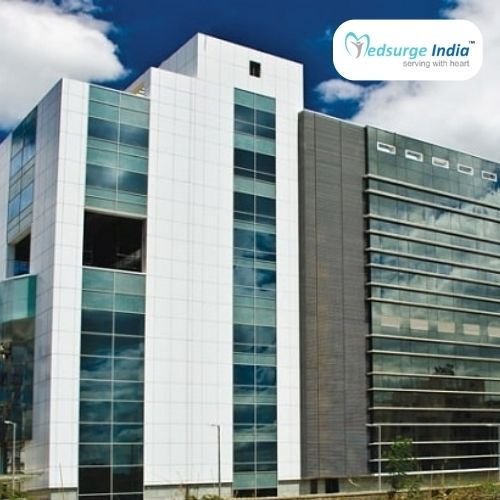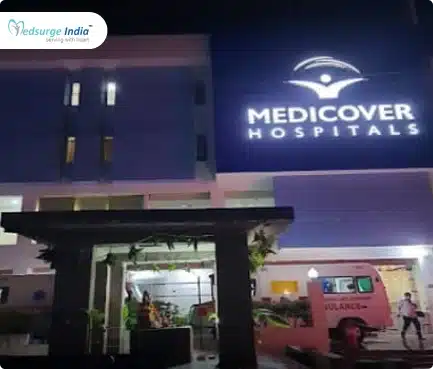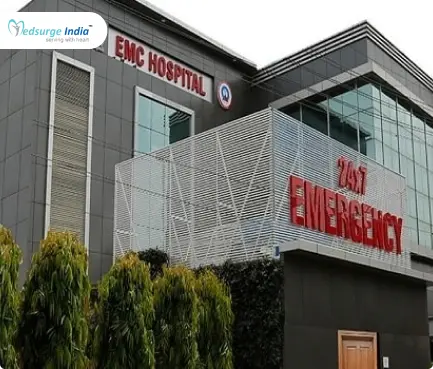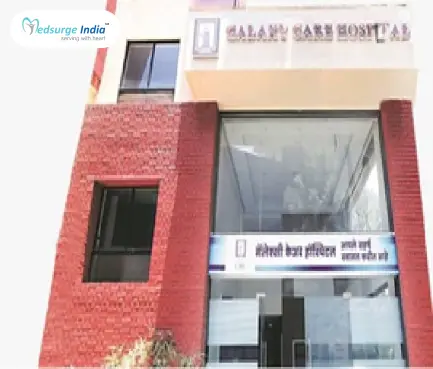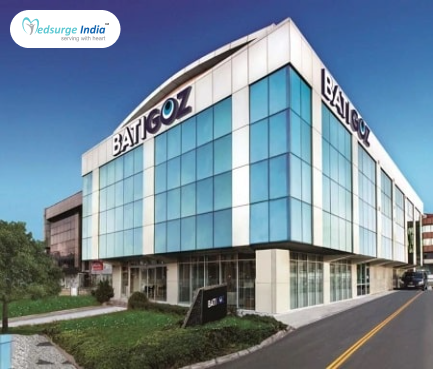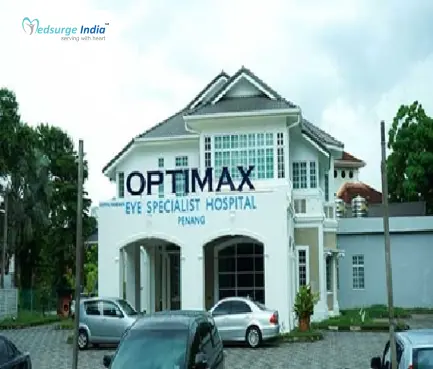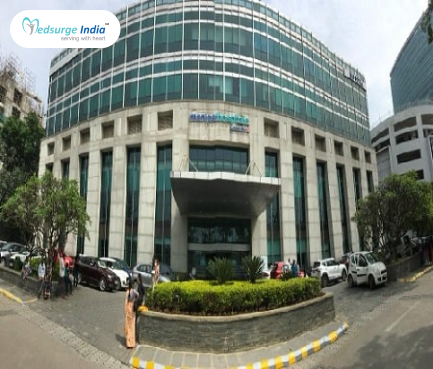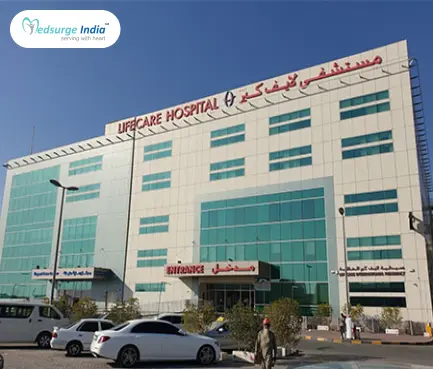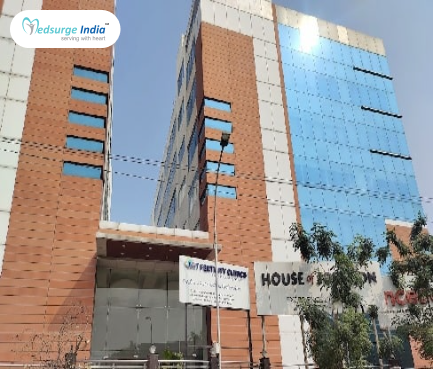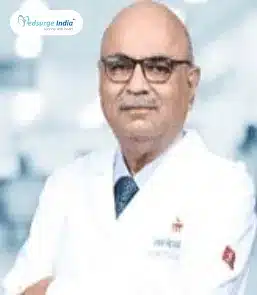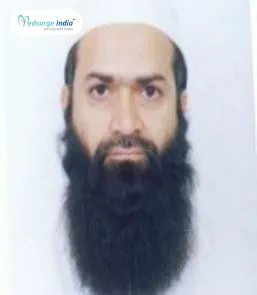
The brain is made up of many different types of cells, including neurons (information messengers) and astrocytes (provide the structure and support for neurons). Astrocytoma is a cancer that develops from astrocyte cells, which are the main supporting cells in our nervous system. This is also known as a “glioma”.There are several options for Astrocytoma Treatment in India, such as chemotherapy, radiation therapy, and target drug therapy. People from all over the world prefer Indian medical tourism because India is a leading country with the best doctors and specialists with work experience, providing better results in disease recovery when compared to other countries. Not only it is less expensive, but it also delivers better results.
When compared to countries such as the United States, Africa, and Australia, the Cost of Astrocytoma Treatment in India is reasonable. Patients seeking Astrocytoma treatment in Indian hospitals are provided with affordable healthcare packages and high-quality machinery or equipment, as well as the assurance of excellent treatment quality and world-class doctors.
What Is Astrocytoma?
Astrocytoma is characterized by the star-like shape of astrocytes, which are brain cells in the cerebrum. Astrocytes are specialized glial cells that not only regulate blood flow but also transfer mitochondria to neurons and provide the building blocks for neurotransmitters (fuel neuronal metabolism). Astrocytoma is also classified as a type of glioma. Gliomas are classified into several types, and their names reflect the type of cells that give rise to them. Glioblastoma, also known as glioblastoma multiforme, is the most aggressive type of astrocytoma.
There are several types of astrocytomas; here are a few instances:
- Pilocytic: These are non-cancerous and rarely spread.
- Diffuse: Grows slowly.
- Anaplastic: It requires aggressive treatment and is rarely seen.
- Glioblastoma: It is a common adult tumor that grows quickly.
An astrocytoma can be a slow-growing tumor or a fast-growing aggressive cancer. Your prognosis and treatment options are determined by the aggressiveness (grade) of your astrocytoma.
Astrocytoma has for subdivision:
- Grade I astrocytoma: Pilocytic astrocytoma is a type of astrocytoma that grows slowly and is most common in the cerebellum.
- Grade II astrocytoma: Also known as diffuse astrocytoma or low-grade astrocytoma.
- Grade III astrocytoma: Anaplastic astrocytoma and lower grade astrocytoma evolution
- Grade IV astrocytoma: Glioblastoma or glioblastoma multiforme.
Astrocytoma Treatment Cost In India
The average Astrocytoma Treatment Cost in India starts from INR 2,50,000 (USD 3,000). In comparison to other countries, the cost of Astrocytoma Treatment in India is relatively low. Additionally, the standard of medical treatment and services is comparable to that of the best hospitals in the world, even after including the costs of travel, housing, and meals the price of the treatment is very low.
Factors That Can Affect Astrocytoma Treatment Cost in India
The following reason may affect Astrocytoma Treatment Cost in India:
- First-rate patient experience
- Holistic approach to patient care
- The price of treatment packages can depend on the hospital’s preference.
- Doctor’s competence and experience in the subject.
- The patient’s situation: The patient’s disease and whether additional modalities are required for comprehensive treatment.
- Duration of hospitalization and stay in the country.
- Need for post-operative care.
- Hospital room classification.
What Are the Signs and Symptoms of Astrocytoma?
Symptoms for astrocytoma can depend on the size and location of the tumor. Which includes the following:
- Headaches
- Nausea and vomiting
These are common, especially during the early morning.
- Many people also have seizures or convulsions.
- Behavioral changes
- Weakness
- Speech problems
- Blurred visions
- Some people have speech arrest and language dysfunction
Warning symptoms: Seizures and paralysis are two major signs of a brain tumor, indicating that the patient is suffering from cancer. If you or a loved one exhibits any of the above symptoms, please contact and consult your doctor as soon as possible.
What Are the Causes of Astrocytoma?
The cause of astrocytoma is still unknown. But there are some factors that are related to environmental factors and hereditary. Below are some of the factors relating to the cause of astrocytoma:
- Age- Age is important because the risk of developing a brain tumor increases with age. Glioma is the most common adult tumor seen between the ages of 40 and 70. However, brain tumors can develop at any age.
- Environmental factors- Long-term exposure to harmful chemicals or radiation (for example, radiation therapy used to treat cancer) can increase the risk of brain tumors.
- Family history- Genetics can also play a role in the formation of cancer cells.
How Is Astrocytoma Diagnosed?
Because the symptoms are similar to those of other disorders, such as neurological disorders, diagnosing astrocytoma can be difficult.
Here are some of the following tests done before starting any treatment:
- Complete blood count
- Radiologist test
- CT and PET Scan
- Electrocardiogram and Chest X-rays
- Angiography
- Cerebrospinal fluid studies
- Neurological exam
- Biopsy
Note: An MRI is the best modality to study brain tumors including the size extent and spread of the tumor.
Helpful – Neurosurgery Cost in India
Get Free Cost Estimation
Procedure
What Are the Treatments for Astrocytoma?
Astrocytoma treatment decisions may be made with the help of specialists such as neurologists, neurosurgeons, radiation oncologists, and medical oncologists. Surgery, radiation therapy, chemotherapy, and therapeutic electric fields are all options for treatment. Surgery is the mainstay of treatment for astrocytoma in India. The primary goal of surgery is to remove as many cancer cells as possible without causing harm to the normal brain, particularly the affected brain areas.
Biopsies, laser ablation, and tumor resection are all surgical treatments. Drains may be placed in order to reduce intracranial pressure. For high-risk tumors, radiation and/or chemotherapies are frequently prescribed. In some cases, tumor-treating electric fields may also be beneficial.
The following treatments include:
- Surgery: To remove as many tumor cells as possible from the body.
- Radiation therapy: Applying high-energy waves to kill tumor cells
- Chemotherapy: Using powerful drugs or medications to kill tumor cells. Drugs like carboplatin, cisplatin, and irinotecan are some other drugs used in chemotherapy.
- Target therapy: It targets cancer-specific genes, such as proteins, or the tissue environment that support the growth and survival of the disease. Everolimus (Afinitor) helps in shrinking the tumor and slowing its growth as this is used for subependymal giant cells astrocytoma which can’t be removed completely by surgery.
Despite the best treatments, including chemotherapy, surgery, radiation, and target therapy, almost all Grade IV tumors recur. Patients must be under the care of a multidisciplinary neuro-oncology team so that they can receive treatment at each stage.
In large neurological centers, many technologies are available, such as operative microscopes, neuro navigation, intraoperative fluorescence studies, and so on.
The entire cost of astrocytoma treatment in India can vary depending on a number of criteria, such as:
- The price of treatment packages.
- The patient’s situation.
- Duration of hospitalization and stay in the country.
- Need for post-operative care.
- Hospital room classification.
What Are the Complications After Astrocytoma Treatment?
Coordination, muscle strength, speech, and eyesight can all be affected by CNS damage. Following a treatment, the following complications may occur:
- Seizures
- Bleeding, and problems with general anesthesia
- Infection and bleeding from chemotherapy
- Delayed growth and development
- Learning problems
- Reoccurring of tumor cells
- Growth of other cancers
What Is the Difference between Glioblastoma vs Astrocytoma?
Glioblastoma: Glioblastoma multiforme, also known as grade IV astrocytoma, is an aggressive type of tumor that occurs in the brain or spinal cord. It is most common in older adults, but it can occur at any age.
Astrocytoma: This starts with cells called astrocytes (support nerve cells). It can be slow-growing cancer or aggressive cancer that spreads quickly. This is a cancer that occurs in the spinal cord and brain, similar to glioblastoma.
Note: Glioblastoma and astrocytoma are the types of tumors found in glioma.
Cancer is a potentially fatal disease that affects our bodies. It can arise from the CNS or other areas such as the lungs, kidneys, and so on, resulting in a brain or spinal tumor at an early stage or as we mature.
It can be difficult to learn that you or someone you care about has cancer but know that as time passes, new treatments, special tools and technologies, and newer drugs are developed and researched. Also, keep in mind that you are not alone during these difficulties and that your family and medical teams are with you every step of the way. The prognosis of an astrocytoma depends on its type and location. Patients with glioblastoma, for example, may have a one-year survival rate, though some patients may live for five years or more. Patients with pilocytic astrocytoma have a ten-year survival rate. If remission is obtained, it may be either permanent or temporary.
Know More – Glioma vs. Glioblastoma: What’s the Difference
How Can Medsurge India Help?
Medsurge India is a prestigious support system for patients looking for doctors, hospitals, and specialized treatments. We’ll find the most suitable medical options for you. Regarding your medical issues, our team will give you a list of certified, reputable, and trusted doctors and hospitals. Additionally, we offer a treatment strategy that fits your budget. Apart, we assist patients with obtaining travel authorizations, medical visas, and a multitude of other things.
The Most Important Frequently Asked Questions
Q: Is Astrocytoma Malignant or Benign?
A: Astrocytoma tumor cells mix and coexist with normal brain tissue. While they are commonly referred to as “benign” tumors, they are more accurately classified as low-grade malignancies because they can and usually do recur or progress to high-grade malignancies over time.
Q: Is Astrocytoma Life-Threatening?
A: Unfortunately, the majority of adult astrocytomas are malignant and require immediate treatment. Some aggressive astrocytomas can be fatal if left untreated for weeks or months. Surgery, alone or in combination with chemotherapy, radiation therapy, and/or stereotactic radiosurgery, may be used as a treatment.
Q: Does Astrocytoma Always Come Back?
A: A high-grade astrocytoma has a higher propensity to spread to other parts of the brain or spinal cord. It is common for this tumour to recur following treatment. Often, additional treatment is required.
Q: What Does Astrocytoma Look Like on MRI?
A: MRI characteristics of astrocytes T2-weighted images of low-grade astrocytomas are typically hyperintense. Most low-grade astrocytomas are hypointense in comparison to white matter on T1-weighted images. Contrast enhancement may be absent or mild at best.
Q: Can an Astrocytoma Develop into a Glioblastoma?
A: Anaplastic astrocytomas can progress to glioblastoma in some cases. Glioblastoma, on the other hand, cannot progress to a higher grade tumor. Tumor cells can sometimes migrate into surrounding tissue and give rise to another tumour. The majority of high-grade astrocytomas recur at or near their original location.
Top Hospitals for Astrocytoma Treatment In India
Top Doctors for Neurology And Neurosurgery
Dr. Ishwarchand Premsagar
Chief
Experience: 30 years of experience
Rajiv Gandhi Cancer Institute and Research Centre, New Delhi
New Delhi, India
Dr. Rajesh Reddy Chenna
Consultant
Experience: 13 years of experience
Apollo Hospitals, Jubilee Hills Hyderabad
Hyderabad, India
Dr. Usha Mallinath
Consultant
Experience: 20 years of experience
Manipal hospitals Life’s On, Whitefield
Bangalore, India
Dr. Praveen Gupta
Director , MBBS, MD, DM
Experience: 16 years of experience
Fortis Memorial Research Institute, Gurgaon
Gurgaon, India
Dr. Thomas J Kishen
Consultant
Experience: 24 years of experience
Manipal Hospital (Old Airport Road) Bangalore
Bangalore, India
Dr. Sanjay Kumar Chaudhary
Senior Consultant
Experience: 22 Years
IBS Institute of Brain and Spine, New Delhi
New Delhi, India
Dr. Bapuji N. Sawant
Consultant
Experience: 44 years of experience
Nanavati Super Specialty Hospital Mumbai
Mumbai, India
Dr. Prasanna AV
Consultant
Experience: 19 years of experience
Ruby General Hospital, Kolkata
Kolkata, India
Dr. Sudheer Kumar Tyagi
Senior Consultant , MBBS, MS, MBBS
Experience: 21 years of experience
Indraprastha Apollo Hospital, New Delhi
New Delhi, India
Dr. Sanjay Kumar Mishra
Associate Director
Experience: 25 years of experience
Max Superspecialty Hospital, Mohali
Mohali, India

